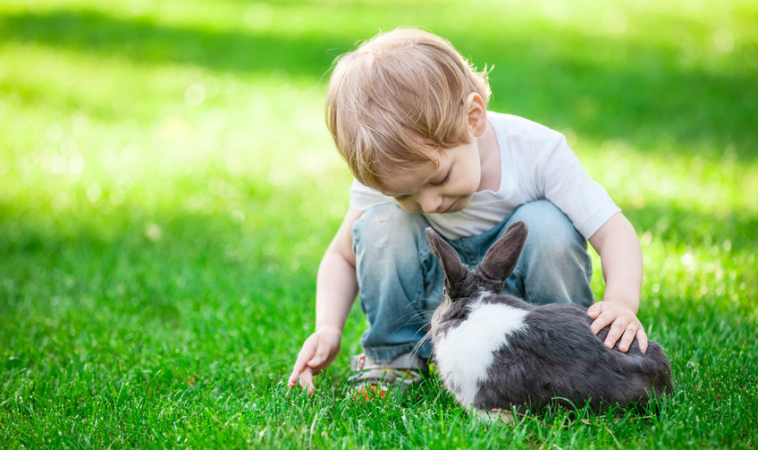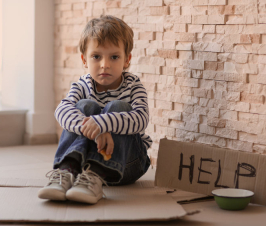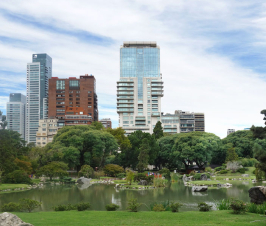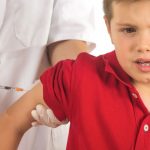Want to ensure your child hits their expected developmental milestones? New UBC research suggests living in areas with high exposure to greenspace can help set them up for success.
For the study, researchers at the UBC faculty of forestry and faculty of medicine analyzed the developmental scores of 27,372 children in Metro Vancouver who attended kindergarten between 2005 and 2011. They estimated the amount of greenspace around each child’s residence from birth to age five. They also assessed levels of traffic-related air pollution and community noise.
The results highlight the fundamental importance of natural green spaces like street trees, parks and community gardens, authors say.
“Most of the children were doing well in their development, in terms of language skills, cognitive capacity, socialization and other outcomes,” says study author Ingrid Jarvis (she/her), a PhD candidate in the department of forest and conservation sciences at UBC. “But what’s interesting is that those children living in a residential location with more vegetation and richer natural environments showed better overall development than their peers with less greenspace.”
According to the researchers, the reason for this is partly greenspaces’ ability to reduce the harmful effects of air pollution and noise — environmental challenges that have been shown to adversely affect children’s health and development through increased stress, sleep disturbances and central nervous system damage.
“Few studies have investigated this pathway linking greenspace and developmental outcomes among children, and we believe this is the first Canadian study to do so,” adds Jarvis.
The researchers assessed early childhood development using the Early Development Instrument (EDI), a survey completed by kindergarten teachers for each child. The tool measures a child’s ability to meet age-appropriate developmental expectations.
“More research is needed, but our findings suggest that urban planning efforts to increase greenspace in residential neighbourhoods and around schools are beneficial for early childhood development, with potential health benefits throughout life,” says the study’s senior author and UBC research associate, Matilda van den Bosch (she/her).
“Time in nature can benefit everyone, but if we want our children to have a good head start, it’s important to provide an enriching environment through nature contact. Access to greenspace from a very young age can help ensure good social, emotional and mental development among children.”
1. Ingrid Jarvis, Zoë Davis, Hind Sbihi, Michael Brauer, Agatha Czekajlo, Hugh W Davies, Sarah E Gergel, Martin Guhn, Michael Jerrett, Mieke Koehoorn, Tim F Oberlander, Jason Su, Matilda van den Bosch. Assessing the association between lifetime exposure to greenspace and early childhood development and the mediation effects of air pollution and noise in Canada: a population-based birth cohort study. The Lancet Planetary Health, 2021; 5 (10): e709 DOI: 10.1016/S2542-5196(21)00235-7

Razi Berry is the founder and publisher of the journal Naturopathic Doctor News & Review, which has been in print since 2005, and the premier consumer-faced website of naturopathic medicine, NaturalPath. She is the host of The Love is Medicine Project docuseries, The Natural Cancer Prevention Summit, The Heart Revolution-Heal, Empower and Follow Your Heart, and the popular 10-week Sugar Free Summer program. From a near death experience as a young girl that healed her failing heart, to later overcoming infertility and chronic fatigue syndrome and fibromyalgia through naturopathic medicine, Razi has lived the mind/body healing paradigm. Her projects uniquely capture the tradition and philosophy of naturopathy: The healing power of nature, the vital life force in every living thing and the undeniable role that science and mind/body medicine have in creating health and overcoming dis-ease. You can follow Razi on social media: Facebook at Razi Berry, Instagram at Razi.Berry and join the Love is Medicine group to explore the convergence of love and health. Look for more, and listen to more Love is Medicine podcast episodes here.

















